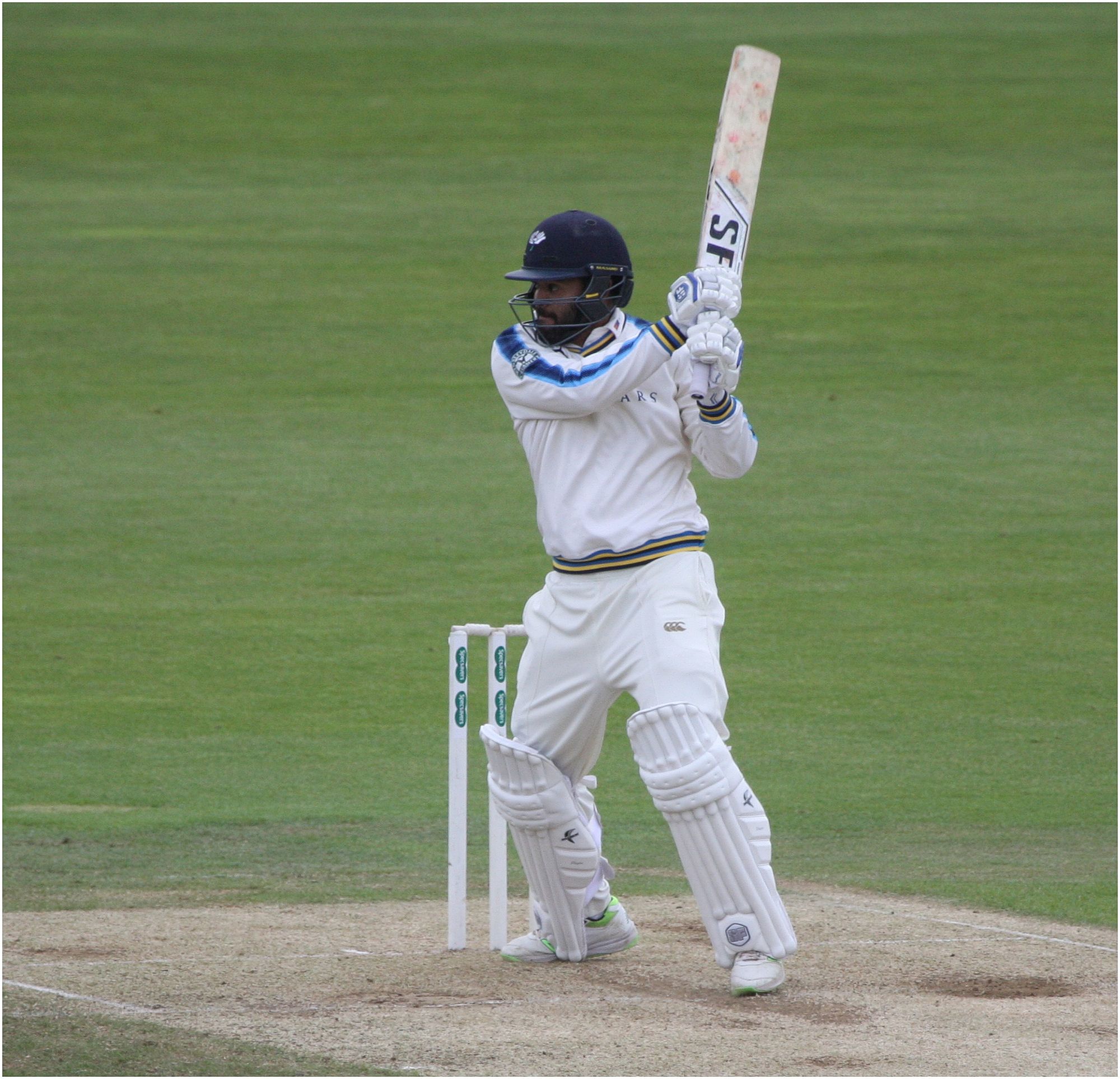Racism in British sports
& the lack of action
By Sharin Hussain
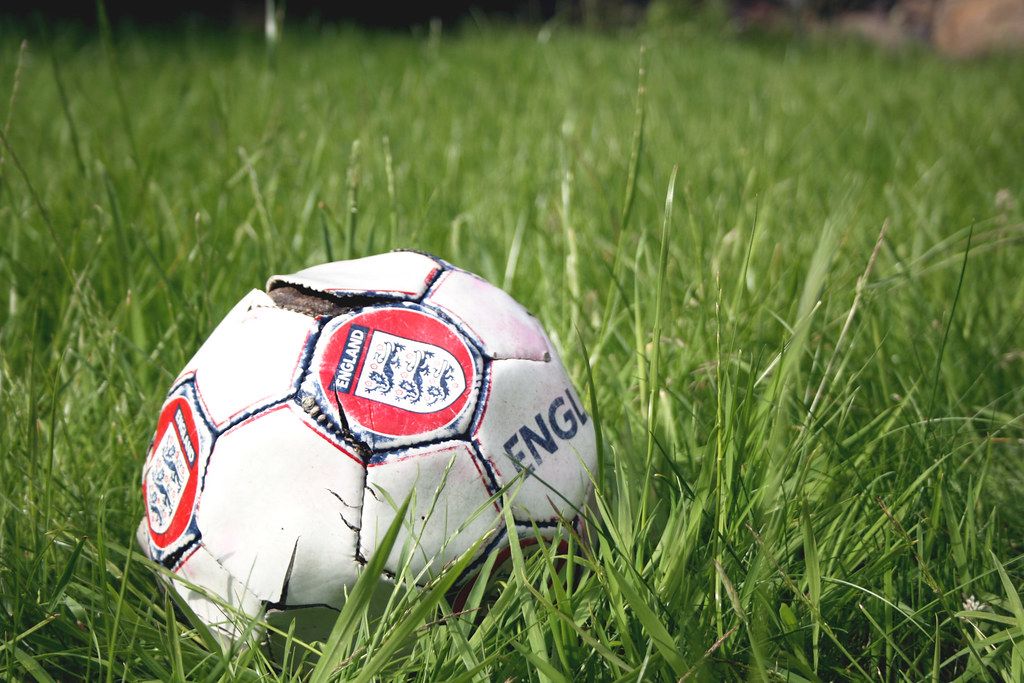
Racism in British sports is an ongoing issue that has constantly made an appearance in a number of sports from football to cricket with players facing discrimination and abuse on the pitch, on social media, and privately.
It comes as no surprise that the Black Lives Matter movement became a global protest that would be important to our British community, with an increase in rallies to overcome and tackle racism that is faced in British society.
So, what is racism?
Kevin Hylton, is Emeritus Professor of Equality and Diversity in Sport and Education at Leeds Beckett University, and Chair of the Sheffield Race Equality Commission. He is one of the leading researchers on 'race', sport and education.
Hylton shared his expert opinion on what racism is.
With many pivotal moments that have happened in the last two years from the Euro 2020 to Azeem Rafiq whistleblowing on institutional racism, what has since been done to help 'tackle' racism in British sports?
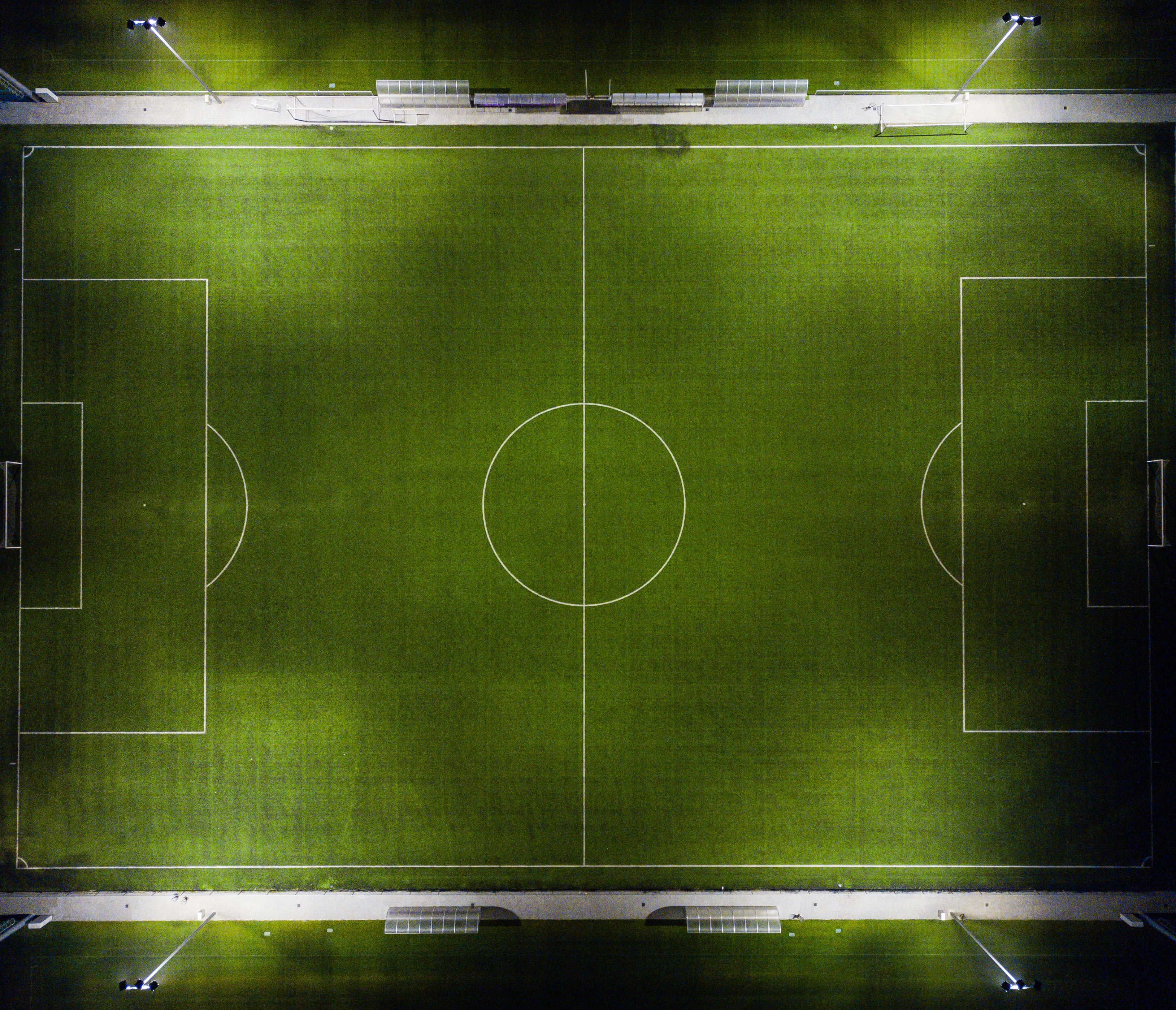
The U.S. national anthem protest is a peaceful protest that was started by an American football player, Colin Kaepernick on 26th August 2016, who took to kneeling when the US national anthem was played during the game to help raise awareness of Racism and Police Brutality in the US.
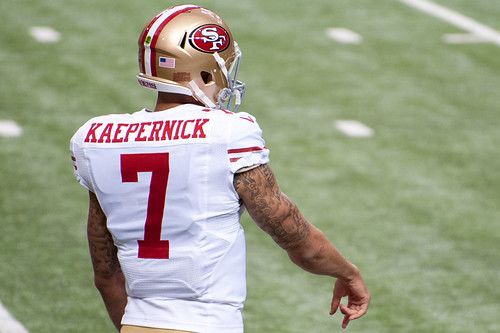
"Colin Kaepernick | San Francisco 49ers" by Seatacular is licensed under CC BY-NC-SA 2.0
"Colin Kaepernick | San Francisco 49ers" by Seatacular is licensed under CC BY-NC-SA 2.0
The San Francisco 49ers quarterback, Kaepernick, was later joined by his fellow football colleague, Eric Reid. Since this movement was established, it has become a global phenomenon with many teams around the world following the action to protest against racism.
The movement often referred to as 'taking the knee' also had a major impact in helping protest against racism after the death of George Floyd who was murdered by a police officer in Minneapolis, Minnesota, during an arrest after a store clerk suspected Floyd may have used a counterfeit $20 bill on 25th May 2020.
The former officer, Derek Chauvin, who has been sentenced to 22.5 years in prison, was recorded kneeling on Floyd's neck and back for nine minutes and 29 seconds which resulted in his death and the footage of this was shared widely all over social media.
During Euro 2020, many football clubs were showing their support by taking the knee before the game would start as a way to not just protest against racism but also to protest against racism in sports.
Crystal Palace player, Wilfried Zaha, 29, was the first Premier League player to stop taking the knee and shared his decision by saying: “There is no right or wrong decision, but for me personally I feel kneeling has just become a part of the pre-match routine and at the moment it doesn’t matter whether we kneel or stand, some of us still continue to receive abuse".
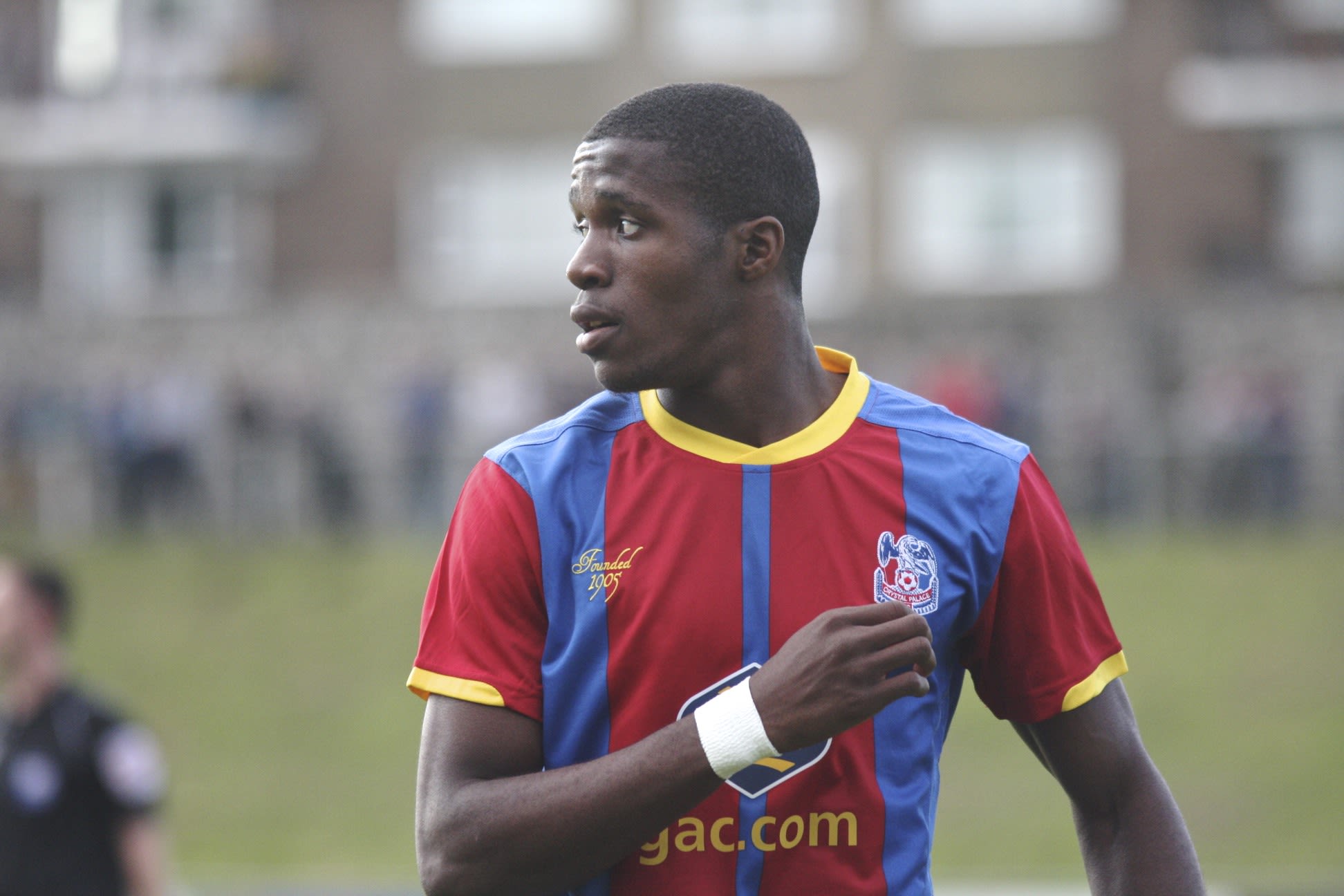
"File:Wilfried Zaha.jpg" by James Boyes is licensed under CC BY-NC-ND 2.0
"File:Wilfried Zaha.jpg" by James Boyes is licensed under CC BY-NC-ND 2.0
YouGov shared data that surveyed 5,265 people across England, Scotland, and Wales from 23rd February - 31st March 2021 focusing on the public's response to the act of taking the knee.
The results also included data given by members of the Black Asian and Minority Ethnic communities.
Each category was sub-divided into responses from the general public and football fans.
Click here to see the full graphs.
Natasha Everitt, 23, is a Charlton Athletic season ticket holder who has been to 71 football league grounds. Everitt shared her thoughts on players taking the knee before matches.
Hylton shared his thoughts on what the act of kneeling does for racism.
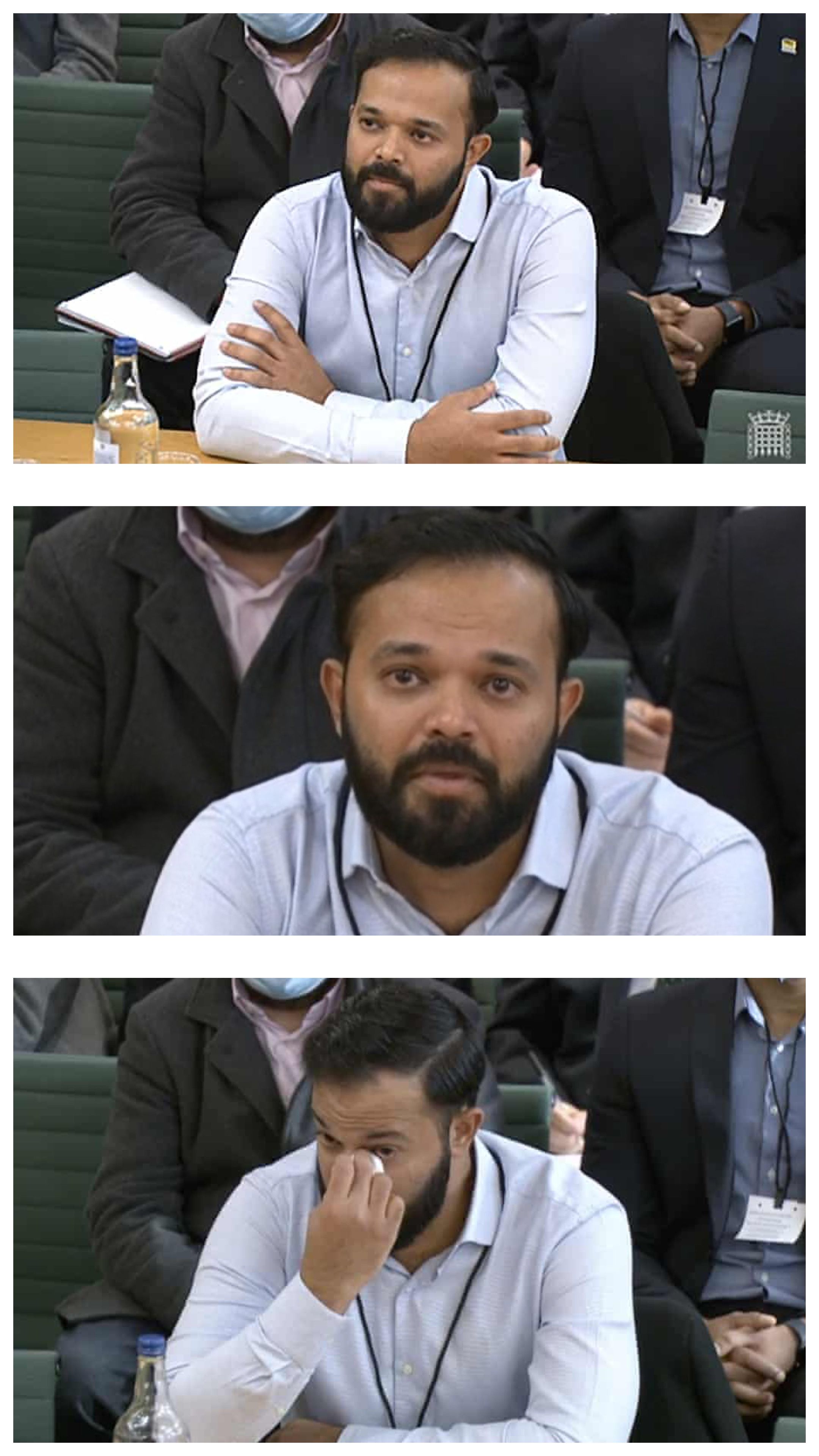
Screenshots taken from Sky News
Screenshots taken from Sky News
Former cricketer, Azeem Rafiq, made accusations of racism and bullying in September 2020 against his former club, Yorkshire County Cricket Club.
He told ESPNCricinfo that "institutional racism" at Yorkshire had left him close to taking his own life and added that he suffered consistent abuse, including the use of racist language about his Pakistani heritage during his time at the club.
After Rafiq shared his claims, Yorkshire County Club launched "a formal investigation" and after a year-long review, Yorkshire said it accepted that Rafiq was the "victim of racial harassment and bullying" and an independent panel upheld seven of the 43 allegations made by Rafiq.
However, they refused to release the full report for legal reasons "in relation to privacy law and defamation" and they also determined that no player, employee, or executive would face any disciplinary action for the report's findings.
The club’s chairman, Roger Hutton, said that there was "insufficient evidence" to say Yorkshire was "institutionally racist".
Hutton and Yorkshire County Club faced backlash for his comments and their lack of sharing the full report with MPs including Sajid Javid which led to Hutton resigning and several other board members also stepping down, including Yorkshire chief executive Mark Arthur.
The new chair, Lord Patel said: “Azeem’s courage in speaking up should be praised, and nobody should underestimate how difficult it would have been to relive all of this in public. His wish to bring a ‘voice to the voiceless' should be an inspiration to provoke real change in the sport.”
On 16th September 2021, Rafiq appeared before a UK parliamentary committee including the Department of Digital, Culture, Media, and Sport, to face questions from MPs in regards to his claims.
This clip shares some key statements from Rafiq.
Three former Yorkshire players have also come forward to say that they heard former England Yorkshire captain Michael Vaughan make racist comments who later admitted that he was named in the report, but said he "completely and categorically" denied any instance of racism on his part.
On 26th November 2021, the club shared its plans to help tackle racism and promote inclusion and diversity at all levels of the game which included setting up an independent whistle-blowing hotline and commissioning a review of processes and procedures on diversity and inclusion.
Shortly after Rafiq’s testimony, it had emerged that evidence was found of him using anti-Semitic language in a Facebook message in 2011. He apologised and said there were "absolutely no excuses".
Rafiq and his family have since faced backlash, and physical threats for him coming forward with his claims of ‘institutional racism’ at Yorkshire.
The European Championship was unbearably close to coming home.
As we all watched in anticipation on 11th July 2021, England fought for the title against Italy in the Euro 2020, and it was intense.
It all came tumbling down to the penalties and with each failed shot made by our England players, the anger, the abuse, and the vulgar language from football fans were immediately shared all over social media, mainly on Twitter.
After 90 minutes, the game ended on a draw of 1-1 and resulted in a penalty shoot out.
Bukayo Saka, Marcus Rashford, and Jadon Sancho missed their penalty shots which resulted in a 3-2 win to Italy making England lose out on the European Championship.
The England team played exceptionally well and should have made every Brit feel very proud of their progression in the tournament but unfortunately, not everyone shared that sentiment.
The social media attacks were an annihilation of all the hard work they procured during the Euros.
A twitter spokesperson said: "The abhorrent racist abuse directed at England players last night has absolutely no place on Twitter.
"In the past 24 hours, through a combination of machine learning based automation and human review, we have swiftly removed over 1,000 Tweets and permanently suspended a number of accounts for violating our rules - the vast majority of which we detected ourselves proactively using technology."
Instagram is owned by Facebook who said:"No one should have to experience racist abuse anywhere, and we don't want it on Instagram,
"We quickly removed comments and accounts directing abuse at England's footballers last night and we'll continue to take action against those that break our rules."
The Home Office released a report on 14th October 2021 on football-related arrests and banning and banning orders in England and Wales during the 2020 to 2021 season.
The graph shows the number of football banning orders in force in England and Wales, from 2011 to 2012 football season to 2020 to 2021 football season and of the 1,359 banning orders in force as of 1 August 2021, almost all (99.4%; 1,351) were issued to males.
Around three-quarters (71%; 963) were issued to those aged between 18 and 34 and 3% (38) were issued to those aged under 18.
— Marcus Rashford MBE (@MarcusRashford) July 12, 2021
Rashford shares his response a day after the final
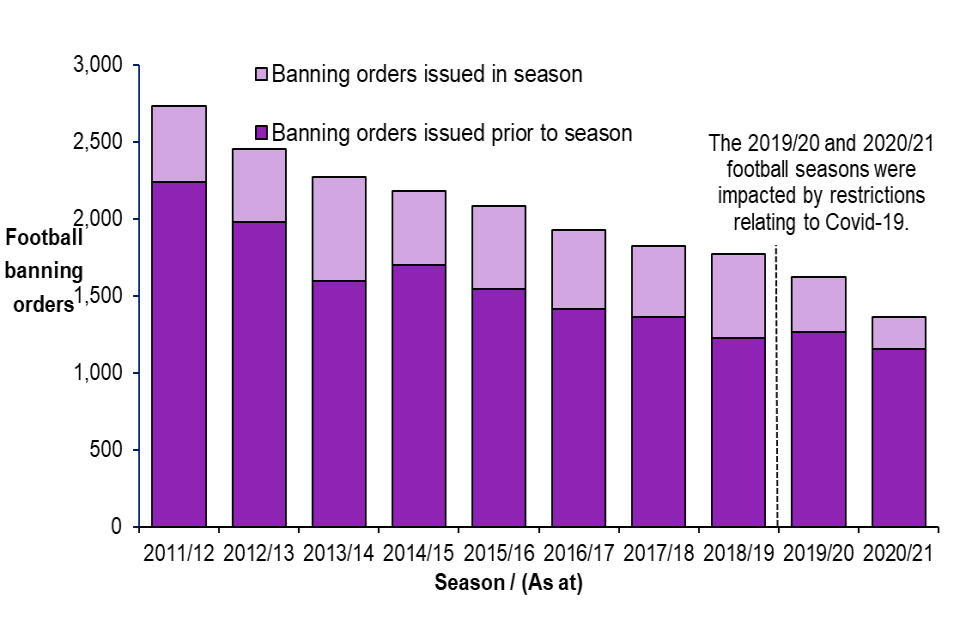
Source: Home Office
Source: Home Office
— Bukayo Saka (@BukayoSaka87) July 15, 2021
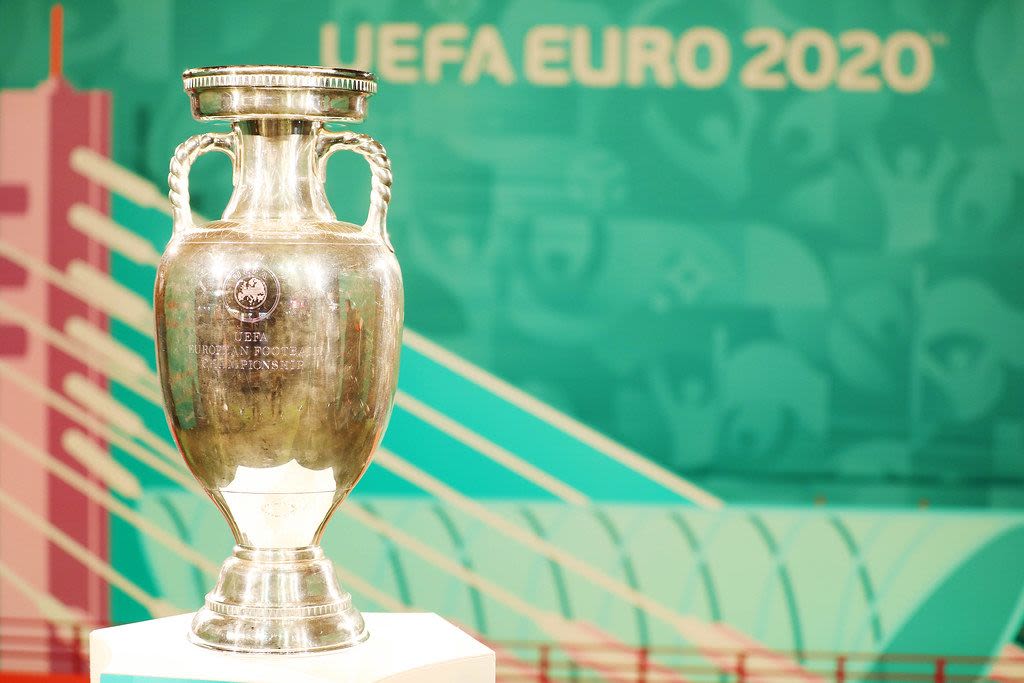
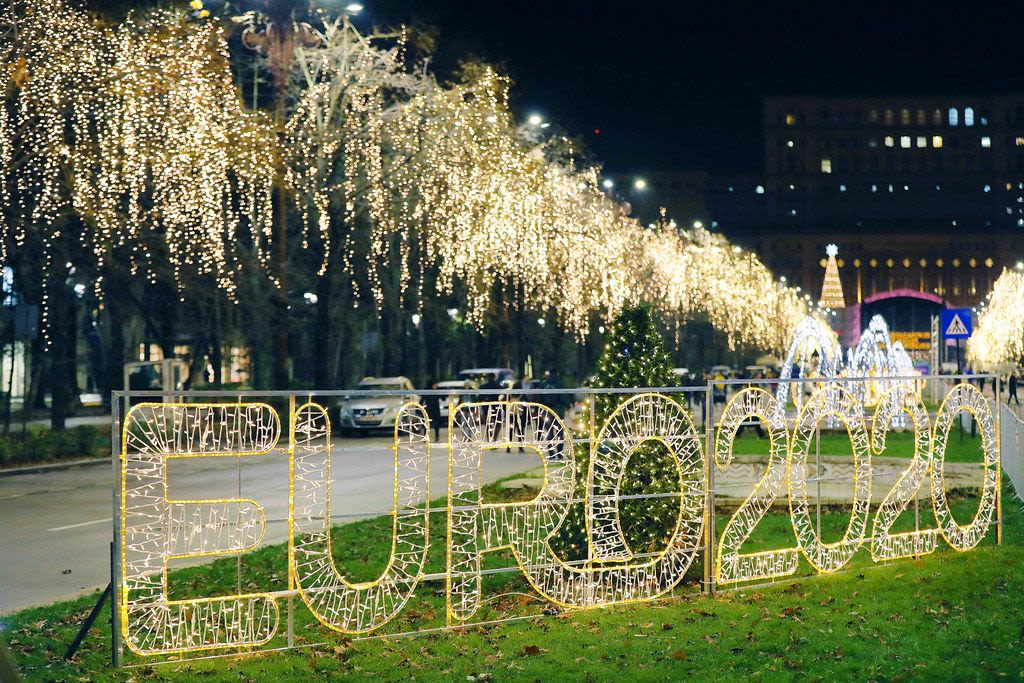
There's no denying that British fans love the game. Unfortunately, they don’t all love the players just the same.
After the Euro 2020 final match where Saka, Sancho, and Rashford missed their penalties, it was unexpected and shocking for many fans and players to see the amount of hatred the England team received from their 'die-hard' fans.
Shaista Aziz, Amna Abdul, and Huda Jawad are three hijabi sisters, who launched a petition the very next day of the Euro 2020 to ban racists for life from all football matches in England, after they witnessed the abuse that the England players received and have since amassed over 1.2 million signatures in just six months.
Aziz said: “We are focused on building an inclusive, multi racial, anti-racist community and movement of sports fans and people who believe in racial equality and justice.
“We are continuing to campaign on ensuring the calls of the 1.2 million people and counting, who joined us in demanding there is no space in sports or society for racists is acted on.
"This government, whose track record on anti-racism and equalities continues to be firmly under the microscope, tech companies and the multi-million-pound football industry, must do much, much, better.”
Maxine Williams on Twitter shared a post on the best way to report someone who is racist or abusive to players which later circulated on other platforms such as Instagram.
She said that the best course of action is to report these people to their employees and stated that actions equals consequences.
Hylton highlights what are the main problems with online social media abuse.
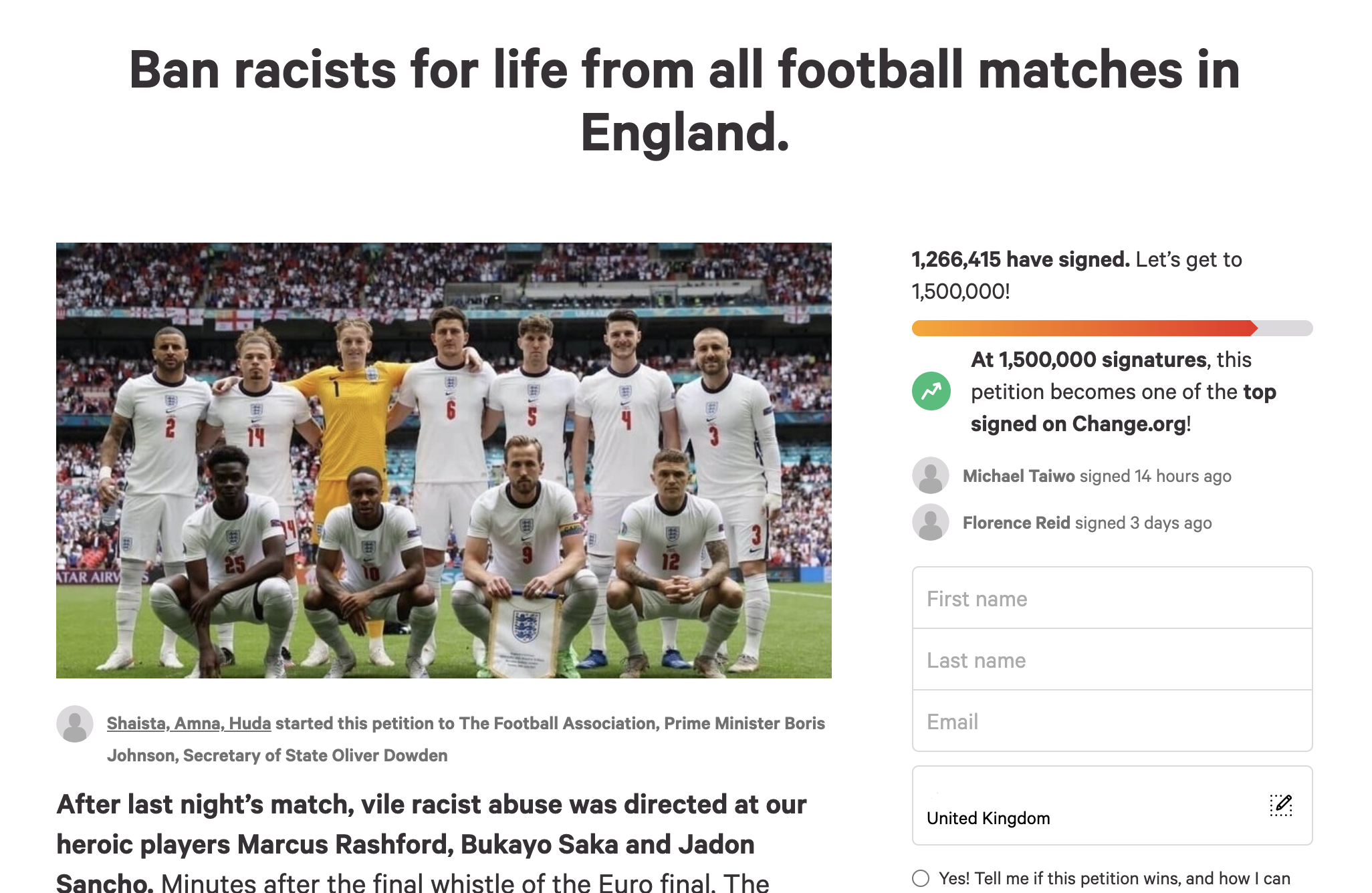
Another fan reminds us of all the work that the three players are achieving outside of their professional careers and how they have helped and continue to help their communities.
Marcus Rashford, 24, is a well loved hero and has been celebrated all over the UK for his campaign against child hunger in the UK.
He had raised £200 million back in 2020 to help feed kids all over the UK and called for the government to do better and offer free school meals.
People across the UK are willing to fight and support our players in all sports but what can be done to protect them in the future as this battle is a slow progression to where sports needs to be in tacking racism.
Everitt shares what actions she thinks should be taken on fans who are abusive verbally or physically at matches.
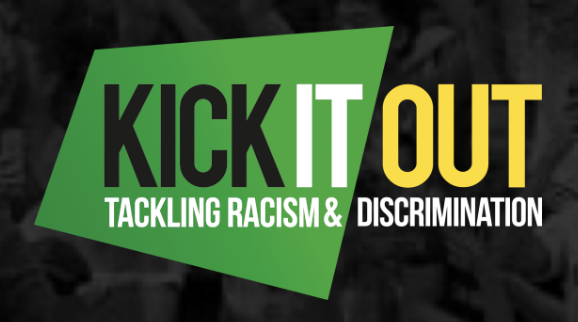
Credit: https://www.kickitout.org/
Credit: https://www.kickitout.org/
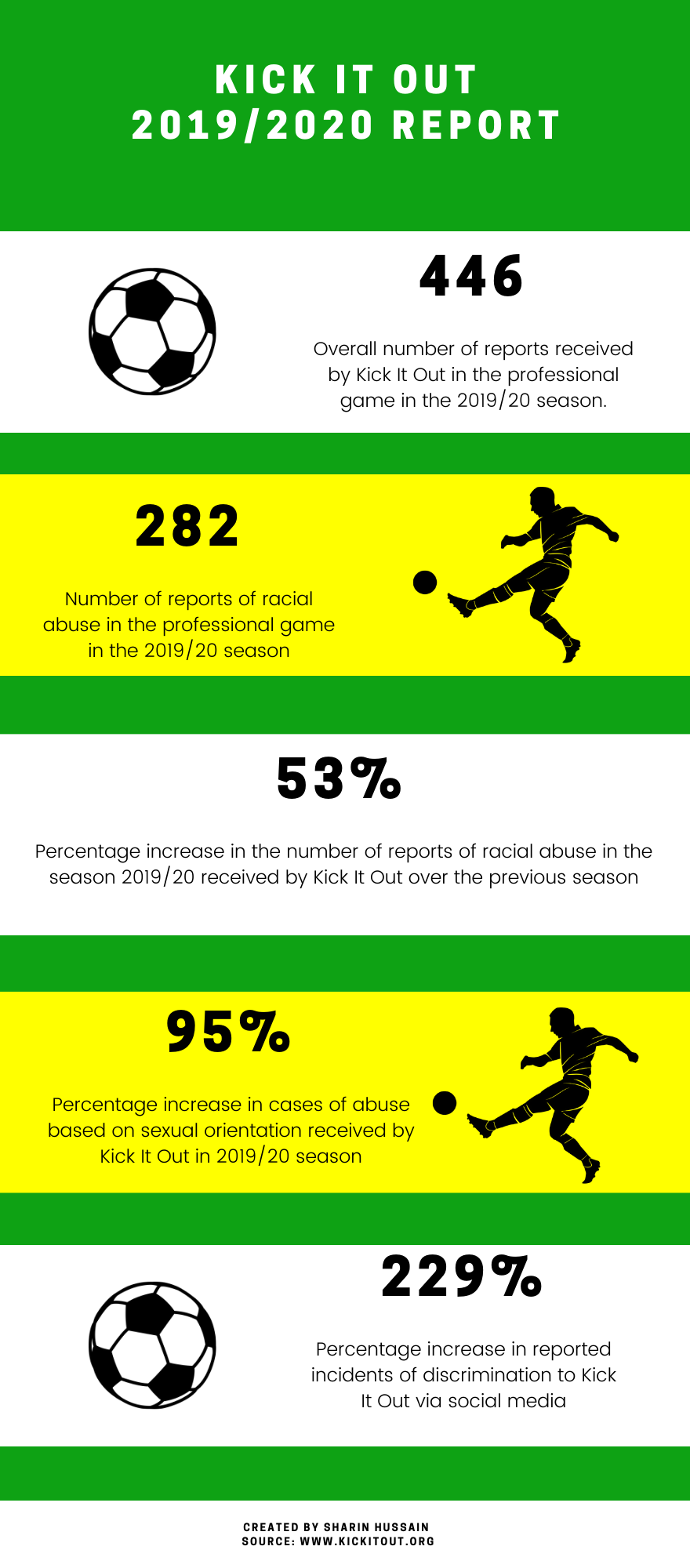
Kick It Out is a UK football’s equality and inclusion organisation, working to challenge discrimination, encourage inclusive practices, and campaign for positive change.
Kick It Out was established in 1997 after a small independent charity campaign ‘let’s kick racism out of football' in 1993 to tackle racist attitudes that exist within the game and more needed to be done by clubs, players, and fans.
On Twitter, the hashtag #TakeAStand campaign is a call to action initiative, encouraging people across the football community to take action or make a pledge, in the fight against discrimination.
The most recent 2020/2021 report was mostly spent in a lockdown and saw very few fans in stadiums or on the sideline.
This means there weren't many incidents to report but even so, Kick It Out saw over 100 incidents that were reported directly to them.
From the graph, we can see that there was a slight increase in race and sexual orientation as reported incidents from social media.
In the 2019/2020 report, there were 446 overall number of reports received by Kick It Out in the professional game in that season.
There was also a 53% increase in the number of racial abuse reported during that season vs the previous season.
The major concern is the 229% increase against the previous season which reported incidents of discrimination to Kick It Out via social media.
During November 2021, Kick It Out supported two programmes that would help fight against racism and discrimination.
Nujum Sports Muslim Athletes Charter is an organisation aimed at helping Muslim athletes, and is a framework for Muslim inclusion in football.
They partnered with Sky to launch a scholarship programme, which will target Black and other under-represented ethnic minorities in the UK applying for the 2022 Football Industries MBA qualification which is a one-year course starting in September this year.
On 12th January 2022, Kick It Out CEO, Tony Burnett said: “Media in the UK are consistently happy to highlight the gesture of protest and its acceptance by the public, but far less happy to explore the reasons why players are taking the knee and the reason they are in fact being supported by the vast majority football fans.
“It has been more than 18 months since the murder of George Floyd ignited a discussion and brought people together to address fundamental human rights for Black people.
"18 months on and our discussion within sport is still focussed on gestures.”
Hylton shares what actions should be taken to help with finding solutions and initiatives that best work for each type of sport.
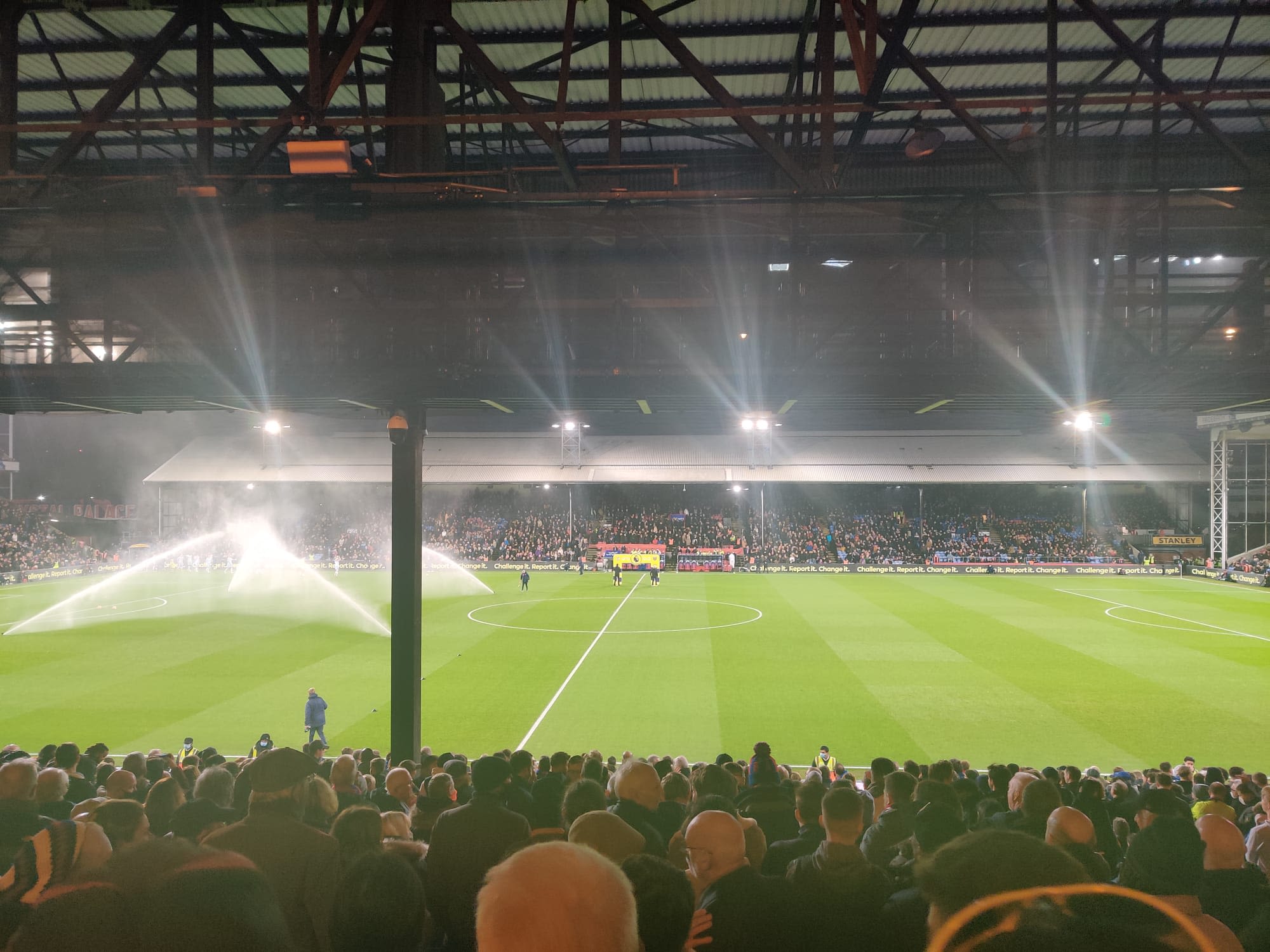
Image by Sharin
Image by Sharin
Dr. Rosena Allin-Khan was the Shadow Minister for Sport from October 2016 till January 2020 who fought to get better actions from parliament for England players against racism.
On 15th October 2019, Dr Allin-Khan spoke about what actions need to be taken to help with tackling racism in stadiums.
In Parliament just now, I asked an Urgent Question on the racism aimed at England players in Bulgaria last night.
— Dr Rosena Allin-Khan 💙 (@DrRosena) October 15, 2019
UEFA must come down hard - fines are not enough, stadium bans are a must and forfeiting games or expulsion cannot be ruled out. pic.twitter.com/uX2mrQInNF
Prime Minister Boris Johnson has been called out by fans and celebrities for being part of the problem that allows racism in sports.
On 7th June 2021, just a few days before the beginning of the Euro 2020, he said he wanted the “whole country” to get behind the England team but had refused to condemn those who booed players taking a knee.
After the Euro 2020 final, Johnson shared this tweet which condemned those who shared abusive social media posts shortly after the match and was branded 'a total hypocrite'.
This England team deserve to be lauded as heroes, not racially abused on social media.
— Boris Johnson (@BorisJohnson) July 12, 2021
Those responsible for this appalling abuse should be ashamed of themselves.
Equally, home secretary, Priti Patel, had also faced backlash for her comments regarding the gesture of booing. Patel shared a tweet of herself watching the game and was immediately called out by several verified people on her 'hypocritical' stance.
This is the woman who refused to condemn people booing this same England football team for taking the knee. Hypocrite #PritiPatel https://t.co/c7wfUDcTff
— Diane Abbott MP (@HackneyAbbott) July 8, 2021
What's Next?
On 11th January 2022, DCMS released a report that said: “We, like the Minister, are watching closely and fully intend to ensure that cricket cleans up its act.
"We recommend that the Government ensures that any future public funds for cricket are dependent on continuous, demonstrable progress in getting rid of racism in both the dressing rooms and on the stands. We recommend that the England and Wales Cricket Board develop a set of key indicators by which they might measure their progress and then report to us on those indicators every quarter.
"We will invite Yorkshire County Cricket Club and the ECB to give evidence on their progress early in 2022.”
Yorkshire County Cricket Club also shared a statement from their chair, Lord Patel, on 11th January 2022 that said: “It is my hope that Yorkshire can set a clear template for other clubs to use so that we as a sport can raise the standard of how we treat others, and how we measure our success.
"It is also my hope that the people of Yorkshire and our supporters across the UK can now start to feel a glimmer of pride – and, of course, that the England and Wales Cricket Board’s decision at the end of this month sees our beloved stadium again able to be a global stage for cricketing excellence.”
On 12th January 2022, Priti Patel shared that the current football banning orders legislation will be extended to cover online hate offences.
Currently, it only imposes on people convicted of violence, disorder and racist or homophobic chanting. Ms Patel said: “Those responsible for appalling racist abuse online must be punished.
"The changes to the law I am announcing will make sure they are banned from attending football matches.”
Kick It Out CEO, Tony Burnett shared this statement on the same day that said: “If we really want to address the issues perhaps the more responsible questions we should be posing are; how many Black managers or head coaches are leading teams in this weekend’s FA cup third round and how does that compare to player representation?
"How many Black or Asian referees will be officiating in those games?
"How many Black or Asian referees have ever refereed a cup final?
"These are the types of questions which open up the real discussions we need to be having within football.
"Why are these subjects so rarely explored by the media?
"I suspect the answer is a combination of often lousy journalism, but also a lack of representation within sports media itself.”
On 13th January 2022, Barry O’Brien, the interim chief of the England and Wales Cricket Board responded to the DCMS report and said: “We are deeply sorry for the pain people have suffered and recognise the courage it has taken to speak out.
"By working with the game to deliver the Action Plan, and continuing to listen and learn from people’s experiences, we are determined to make cricket a stronger, more welcoming sport.”
You can still sign the change.org petition to support the banning of racists for life from all football matches in England.
It's slow progress but progress none the less.
There is hope to see more impactful initiatives that implement changes that will hopefully help to tackle racism, not just in sports but in our communities too.

Image/Video Credits:
Title Image/ Credit Image: "England Football Grass Close-up" by irish-adam is licensed under CC BY-NC-ND 2.0
Introduction/What's Next Image: Photo by Bence Balla-Schottner on Unsplash
Azeem Rafiq: Dave Morton, PDM-owner, via Wikimedia Commons
Screen grabs from Rafiq's Testimony on Sky News: https://www.youtube.com/watch?v=414rkuk5g7o&feature=emb_title
Kick It Out:https://en.wikipedia.org/wiki/Kick_It_Out_(organisation)
Rosena Allin Khan: David Woolfall, CC BY 3.0 <https://creativecommons.org/licenses/by/3.0>, via Wikimedia Commons
Boris Johnson: Ben Shread / Cabinet Office
Priti Patel: Richard Townshend, CC BY 3.0 <https://creativecommons.org/licenses/by/3.0>, via Wikimedia Commons

